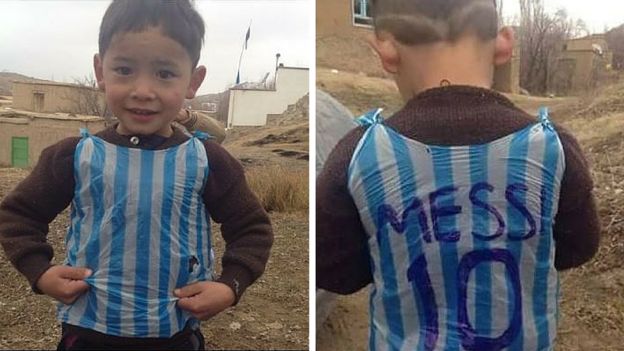Read Parts 1,2, 3, 4, 5, 6, 7, 8, 9, 10, 11, and 12 of the Pristine series
here,
here Here Here here here,
here,
here Here here here and
here
Tayo and Dara connected in ways
that never ceased to amaze her. He was
older, more mature and naturally more knowledgeable, and it fascinated her how
much she learnt from him. His intelligence tripped her, but his humour got her
everytime! She loved how he made her laugh without even trying sometimes. With
him, she felt safe, like she could talk to him about anything, and for this she
was grateful. It was a relief to be able
to open up to someone after the whole Chika saga, although she had known Tayo
for barely two weeks and had to be as careful as possible.
Her second time at his place, they
had lunch and saw the first season of Modern
Family. She got so engrossed, sprawled on the sofa, that when her eyes
darted to her watch, it was already past ten.
“How did time fly so fast?!” she
exclaimed springing up to throw her phone she had been charging into her
handbag.
He drove her to the lodge, where
she was appalled to find the gate locked when they got there at eleven. She
became agitated when no one answered her knocks. A peek at Uju’s back window
suggested that she wasn’t in, but Chika was already out of town, so where could
she possibly be? Two other families stayed with them in the compound was
everyone really asleep? Seriously?!
“It’s weekend, you don’t have to
be up early. You could sleep over at mine if you don’t mind,” Tayo offered
gingerly, careful not to aggravate her frustration.
She ignored his offer. “I have
Uju’s number, let me call her. I hope she doesn’t switch off her phone at
nights.”
A giggly Uju picked up to say she
was spending the night out. Tayo stood watching Dara stare at the gate as if
she would break it down. As if she could. Finally, she sighed and muttered
without looking at him, “Let’s just go.”
Back at his, they continued the
movie till midnight. He let her have the room while he slept in the parlour,
and even though she knew she should probably sleep with eyes wide open, somehow
she completely trusted him. He didn’t seem the type to try anything nasty in
the night, and even if he did try, surely he wouldn’t go any further than she
agreed to. She really liked him. How far she would consent to was the big
question, but she drifted off to sleep still thinking of an answer.
He dropped her off as early as
seven, at the same time Uju was stepping out of a black jeep. They both
wordlessly walked into the compound, and when they got to their doors, Dara
couldn’t help but ask, disgusted, “Chika left town a few days ago and you’re
already seeing other men?”
Uju looked taken aback. “Oh I’m
sorry, I didn’t realize I needed anyone’s permission to get on with my life.”
Dara shook her head. “It doesn’t
speak well of you, moving on so quickly from one guy to another.”
“Bloody goody-two-shoes,” Uju
said, smiling as she turned her key in the lock.
Dara frowned and followed her into
the room, uninvited. She had been there a few times when Uju just moved in, but
the visits had stopped when Uju didn’t seem to appreciate them. Now four months
had passed, and the room still looked barely lived in. There were no towels or
panties hung to dry, no single pot or plate in sight. Dara had to remind
herself Uju stayed out most of the time anyway, to stop wondering how come her
own room never looked so tidy. She asked, a frown on her face, “Uju, don’t you
see any reason in what I said?”
Uju had taken off the animal
prints mini dress she wore to reveal matching black lacy lingerie. She folded
her arms across her chest and replied with a half smile, “There’s a power that
comes from giving and receiving pleasure. That power is my drug. I couldn’t
possibly live without itm Chika or not.”
Dara’s frown grew deeper. “But you
really did like him, right?”
“Yeah…I liked what we had. No
promises, no false declarations, none of the delusion called love, just some
good ol’ fun, and lots of it too, if you know what I mean.” She winked.
It struck Dara then, that the
things Uju mentioned were the very same things she had expected of Chika. A
few, simple heartfelt words would have made a whole world of difference in his
kitchen that day. She had already known she liked him, all she had wanted was a
confirmation that the feeling was sincerely mutual, and then the kiss could
have happened. But…kiss first and then spend the rest of her life wondering
what it meant? Wasn’t it just better to have everything defined right from the
start?
“He was amazing in bed, we did
some crazy things you don’t even want to know about trust me. You’re not
jealous now, are you?” Uju continued tauntingly, twirling some strands of
Dara’s curly weave around her fingers as they stood facing each other.
Dara shrugged off her hand and
told her, “You know all you sound like right now is a sex-crazed freak, right?”
Uju laughed. “Call me whatever you
like, but I still think seeing a guy say your name in ecstasy is one of the
most beautiful sights ever. It’s just priceless.”
“Love isn’t a delusion, Uju. And
sex is beautiful only between who have genuine feelings for each other, it
carries more meaning that way!” Dara replied, horrified.
Uju scoffed. “How would you know?
You’ve obviously not even tried it before.”
“Maybe that’s because I learnt to
carry myself with dignity and not mess around with guys,” Dara retorted,
heading for the door.
“Of course, there’s always a
chance of guys not finding you attractive because you’re so uptight too, you
know,” Uju replied, slamming the door shut.
To be continued….
***************************************************************************
Morountodun is a writer and a microbiology graduate of University of Ilorin.
Twitter: @Morountosweet
***************************************************************************
Are you a writer? Interested in sharing your short stories on this











